THE iconic film Deewaar is widely regarded as the best movie headlined by Bollywood’s greatest star, Amitabh Bachchan. It is also arguably the greatest film of Hindi cinema’s most successful director, Yash Chopra.
This powerful crime drama, inspired by Gunga Jumna (1961), revolves around two brothers on opposite sides of the law who are headed for a collision course. Released on January 24, 1975, Deewaar celebrates its 50th anniversary this week.
Eastern Eye marks the occasion by presenting the 10 best scenes from this timeless classic.
Angry young man: Witnessing the death of a fellow labourer drives Vijay (Bachchan) to stand up to the local extortion gang. Ignoring his senior’s advice, he waits for them in their own den and announces his presence with the unforgettable line, “Tum log mujhe dhoond rahe ho aur main tumhara, yahaan intezaar kar raha hoon” (You are looking for me, and I am here waiting for you). What follows is a thrilling fight, where Bachchan single-handedly takes on half a dozen goons and wins, much to the delight and relief of his colleagues.
Beginning of the end: Learning of his bravery, rival gang boss Daavar (Iftekhar) offers Vijay a chance to work for him, promising a lucrative life. As Vijay reflects on his painful childhood, remembering his mother’s struggles during their years of poverty, he accepts Daavar’s offer, taking his first step into the criminal world. The scene ends with another iconic dialogue delivered by Bachchan – “Main aaj bhi phenke huwe paise nahin uthata” (Even today, I don’t pick up money that has been thrown down).
Disburden: As Vijay rises within the feared gang and his life changes, Anita (Parveen Babi) enters the picture. The intimate scene of them in bed together and smoking is daring for its time, but what adds poignancy is Vijay, usually aloof, letting his guard down and sharing his emotions with Anita.
Catalyst: Wracked with guilt after shooting a boy for stealing bread, younger brother Ravi (Shashi Kapoor) takes food for his family. When his mother learns his identity, she scolds him, questioning his integrity for targeting the poor while leaving the rich criminals unpunished. Ravi realises that this moment holds the key to resolving his internal conflict and decides to arrest his brother, fulfilling his duty as a police officer.
Confrontation: After realising that his brother and mother (Nirupa Roy) are aware of his misdeeds, Vijay delivers a memorable monologue justifying his actions by recounting the events that led him into crime. Ravi and their mother also passionately voice their own feelings, standing up to Vijay. After a verbal tug of love, their mother chooses the “good” son, and they both leave Vijay’s house.
Brothers’ encounter: Knowing that his life is in danger from his own gang members, Vijay asks Ravi to leave the city. Choosing the bridge under which they slept as children as the meeting point gives depth to the conversation that follows. The true divide between the brothers becomes clear, and the scene ends with Vijay questioning Ravi on what his so-called principles and ethics have earned him, comparing his modest lifestyle to his own luxuries. Ravi delivers the most iconic comeback in Indian cinema history – “Mere paas Maa hain” (I have my mother).
Scar for life: After his estranged father’s funeral, Vijay opens up to Anita, who suggests he have the tattoo, forced on him as a child, removed. Vijay replies that the words “mera baap chor hain” (my father is a thief) are not just etched on his arm, but on his heart, mind, and soul, from where no surgery can remove them. This scene gives the audience insight into Vijay’s character and his inner turmoil.
Divine encounter: Blaming God for his troubles, Vijay refuses to enter any temple, much to his mother’s dismay, until she falls ill towards the film’s end. In the most memorable and poignant scene, he ends his stubbornness and speaks to God. Initially angry, he eventually breaks down, accepts his wrongdoings, and begs for his mother’s life.
The final chase: Just as Vijay is about to surrender, his life is shattered by the murder of Anita at the hands of Samant (Madan Puri), whom he kills in retaliation. In an intense climax, Ravi chases Vijay, who relies on his badge, numbered 786, to protect him. As fate would have it, Vijay falls during the chase, losing his auspicious badge. He desperately fails to retrieve it, and after this critical moment, Ravi shoots Vijay, fulfilling his duty as a police officer.
Salvation: Injured, Vijay reaches the temple where his mother is waiting. In a moving scene, Vijay expresses his emotions, not just to his mother, but also to himself. His final moments are filled with grief, acceptance, and redemption as he breathes his last in his mother’s lap, reminding the audience that good always triumphs over evil.

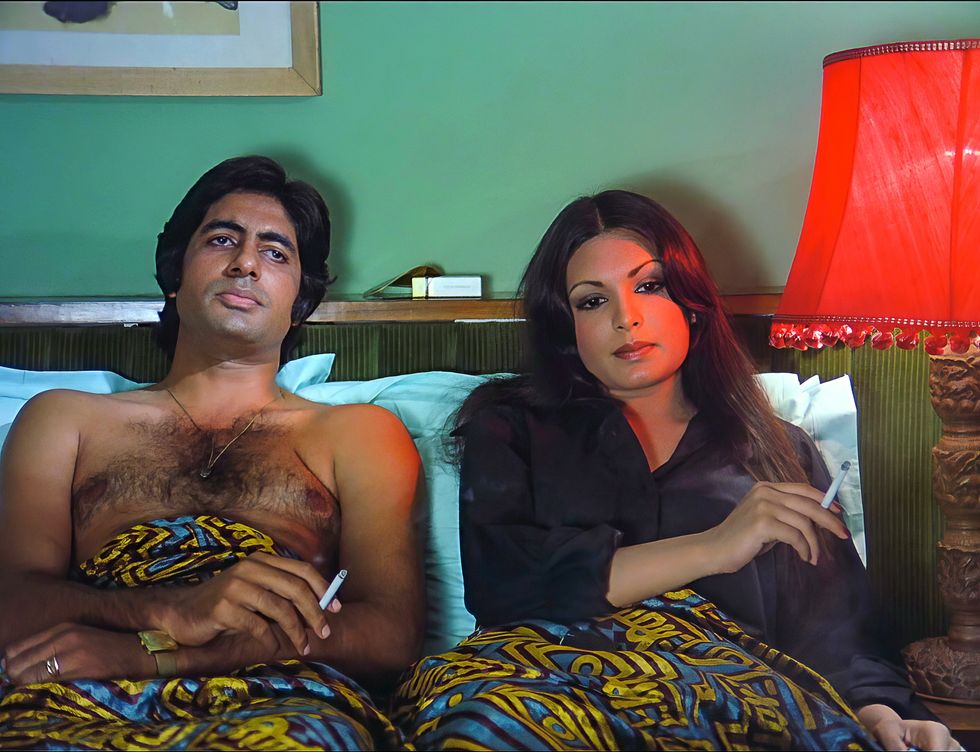
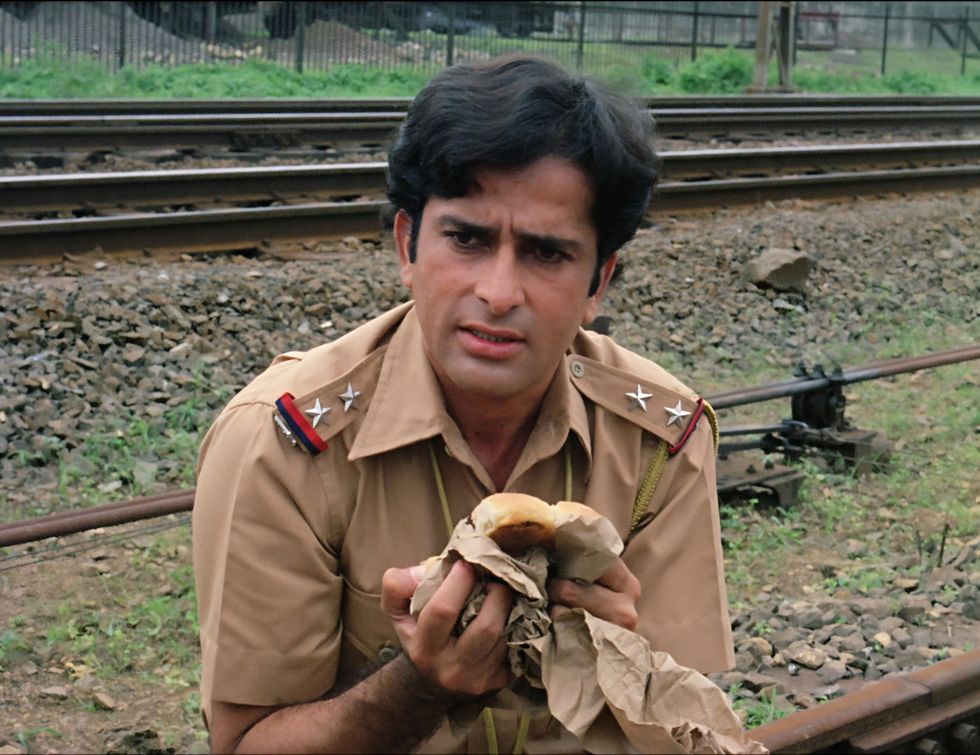
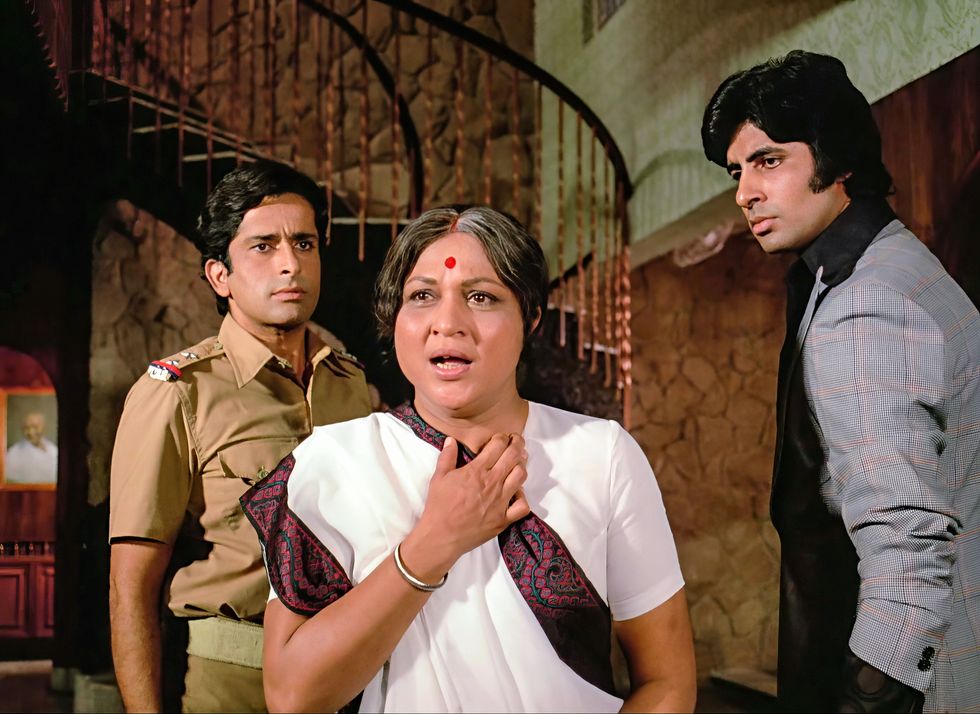
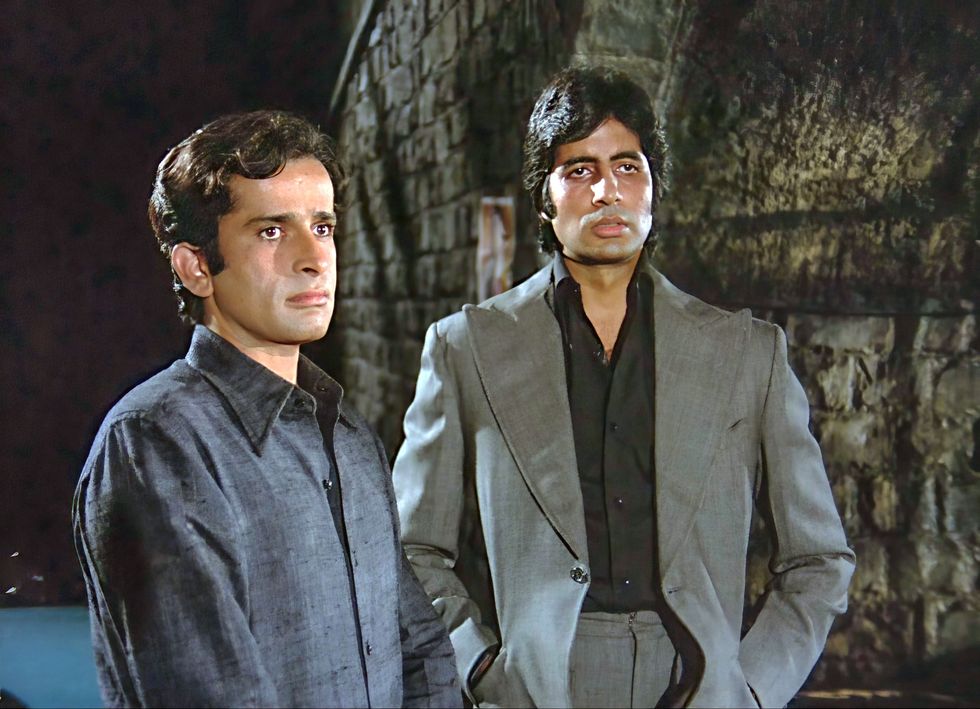
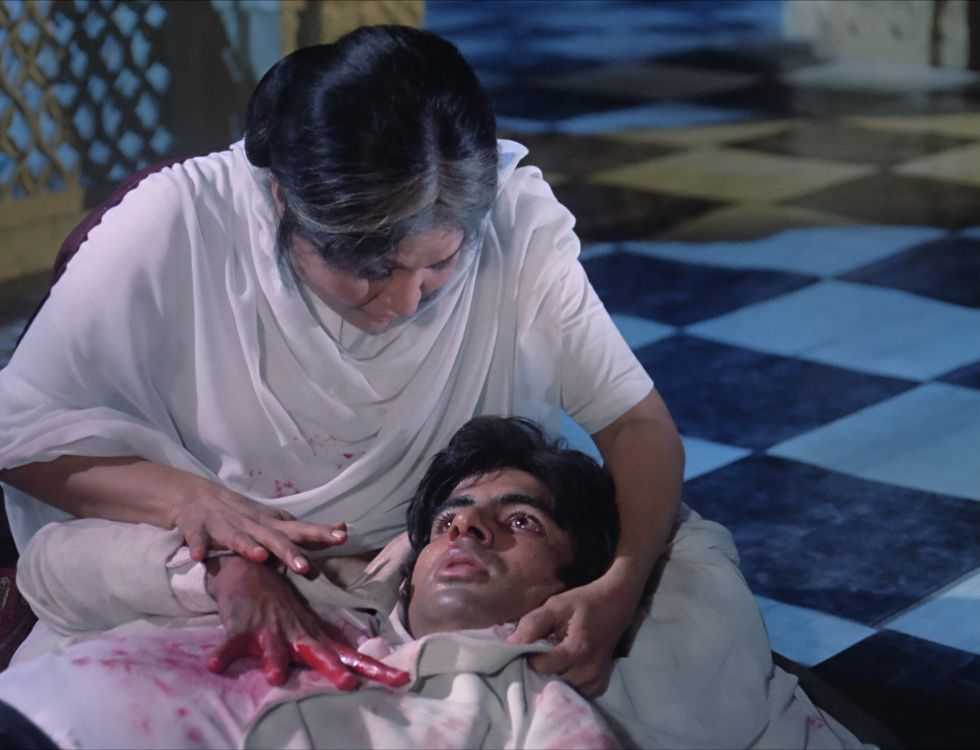

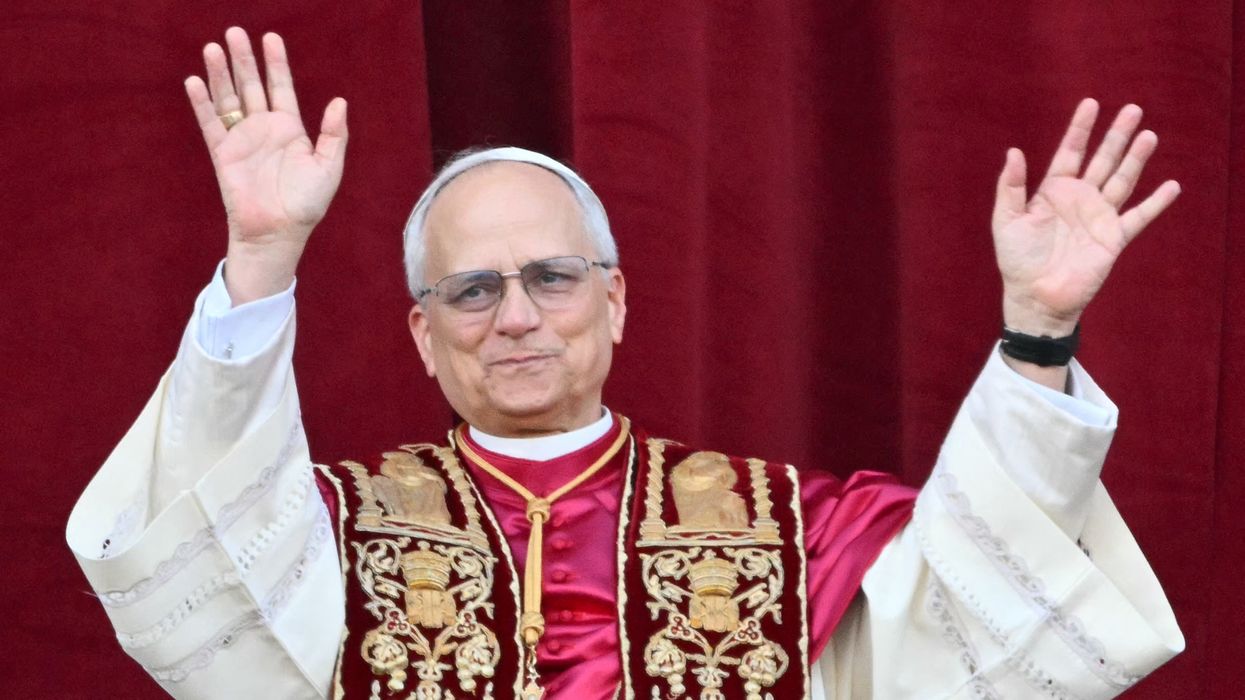



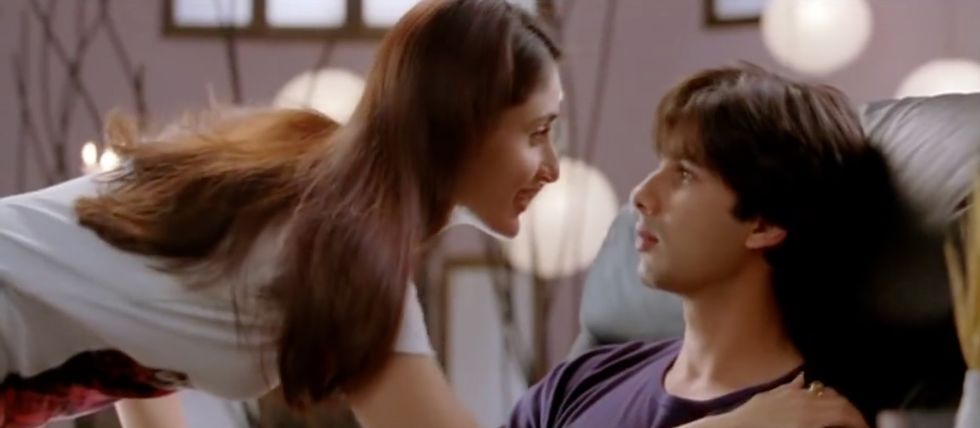 Jab We Met
Jab We Met 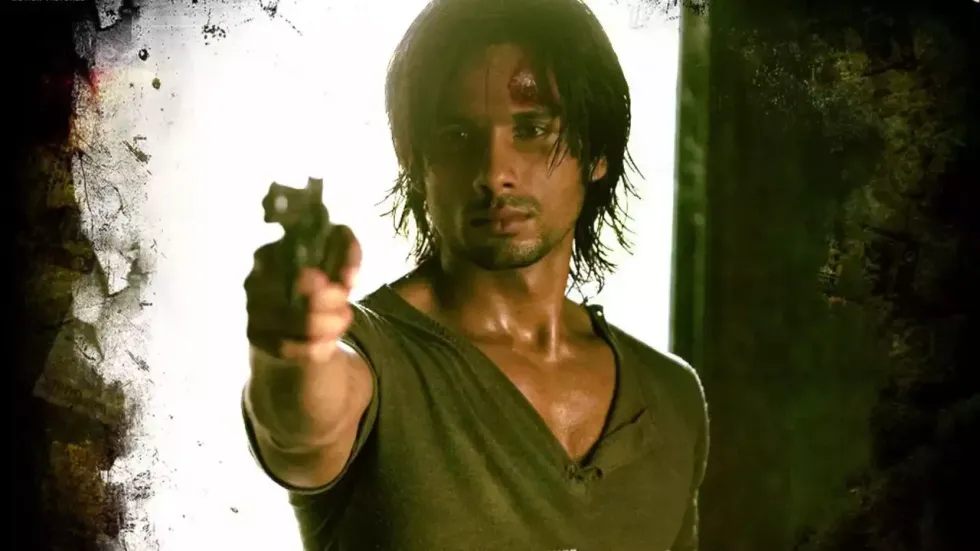 Kaminey
Kaminey 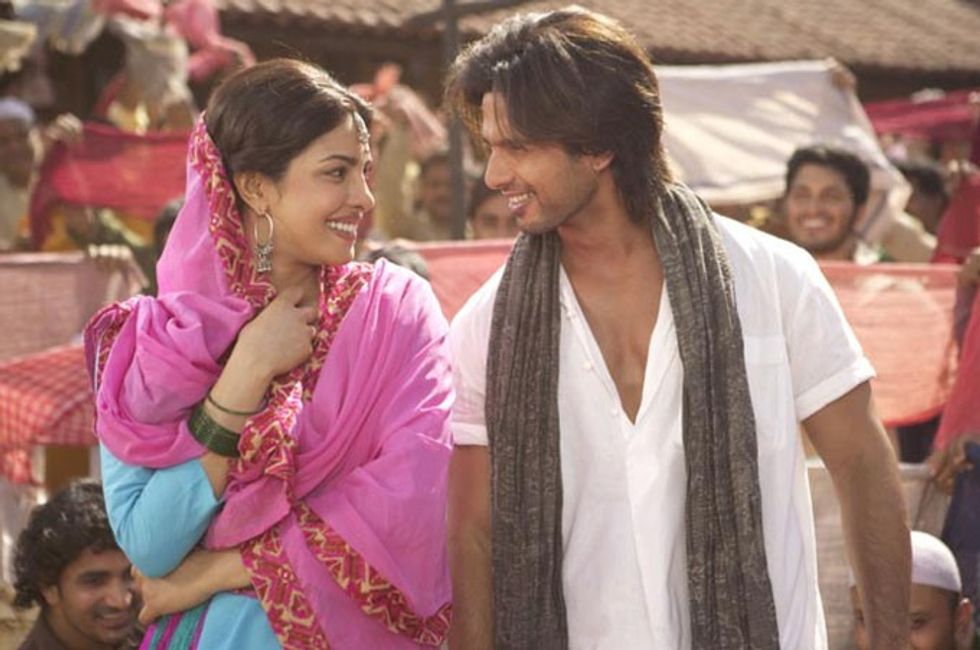 Teri Meri Kahaani
Teri Meri Kahaani 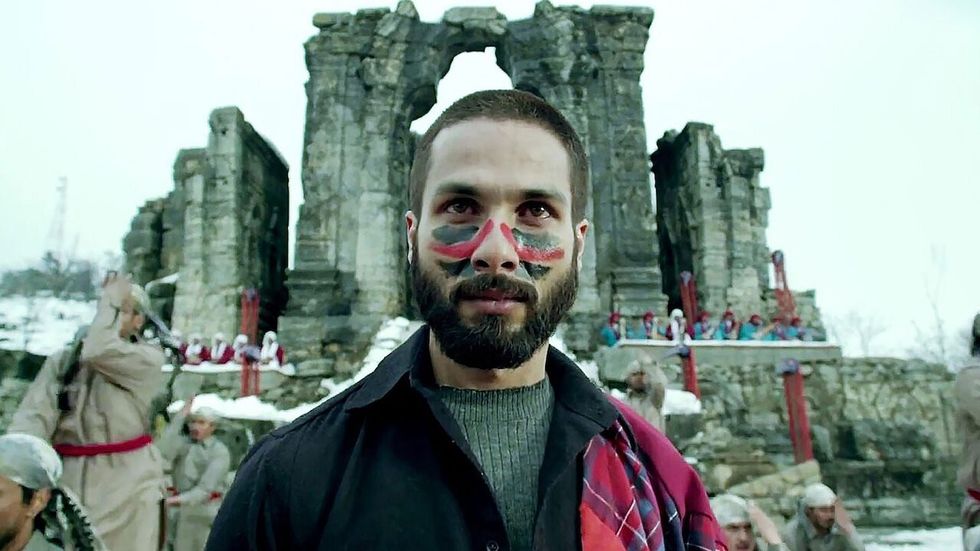 Haider
Haider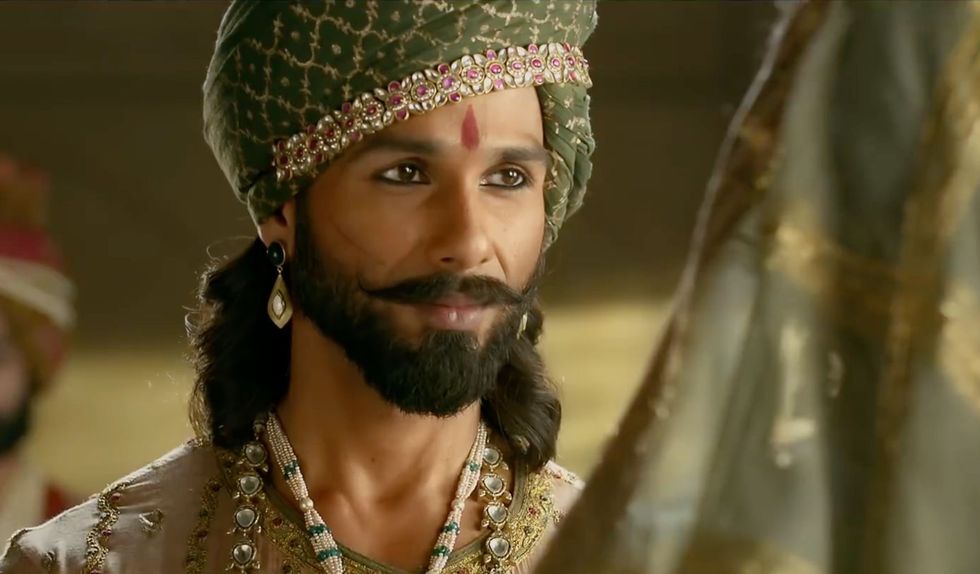 Padmaavat
Padmaavat 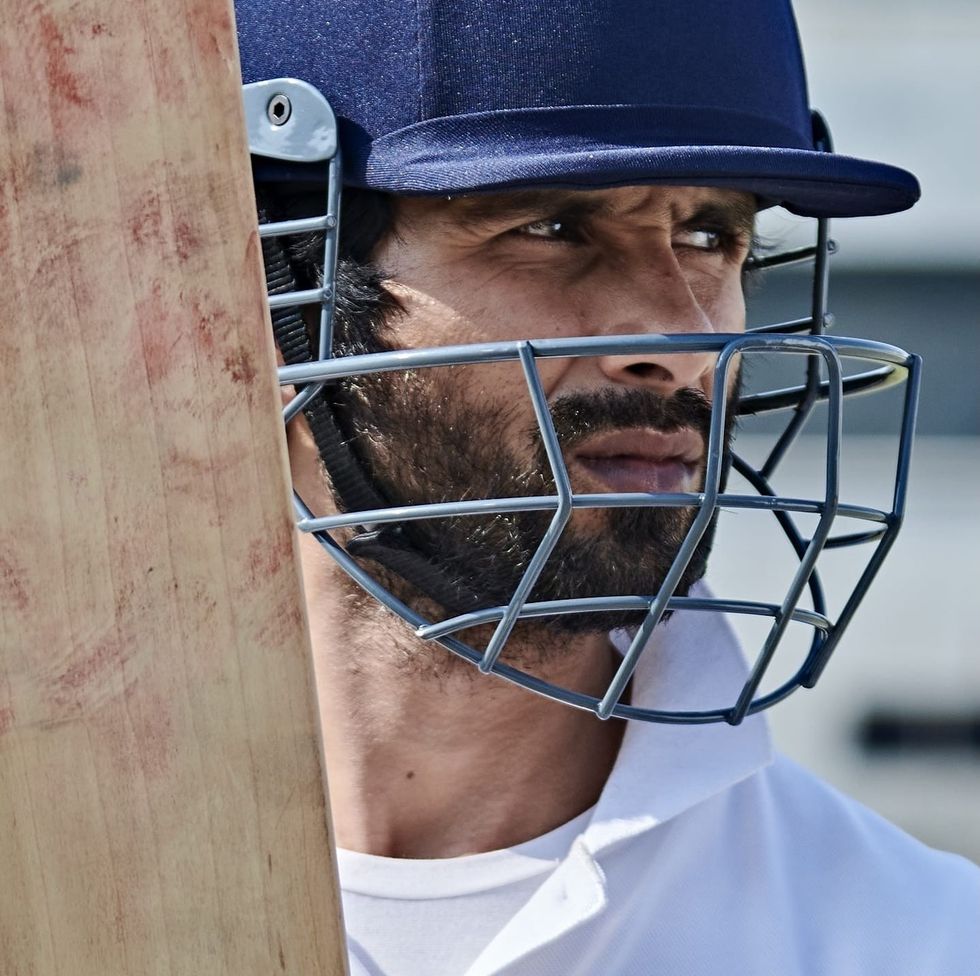 Jersey
Jersey 










 Andaz
Andaz Daag
Daag Devdas
Devdas Dostana
Dostana Dostana
Dostana Tumsa Nahin Dekha
Tumsa Nahin Dekha Padosan
Padosan Kuch Kuch Hota Hai
Kuch Kuch Hota Hai
 Woh Saat Din
Woh Saat Din Mughal-e-Azam
Mughal-e-Azam Mann
Mann Judaai
Judaai
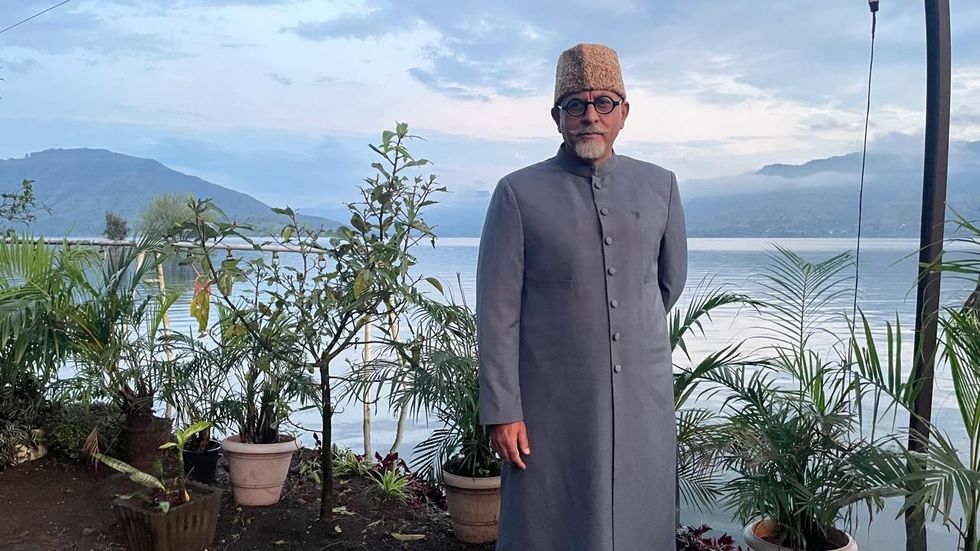 Chopra in Freedom at Midnight
Chopra in Freedom at Midnight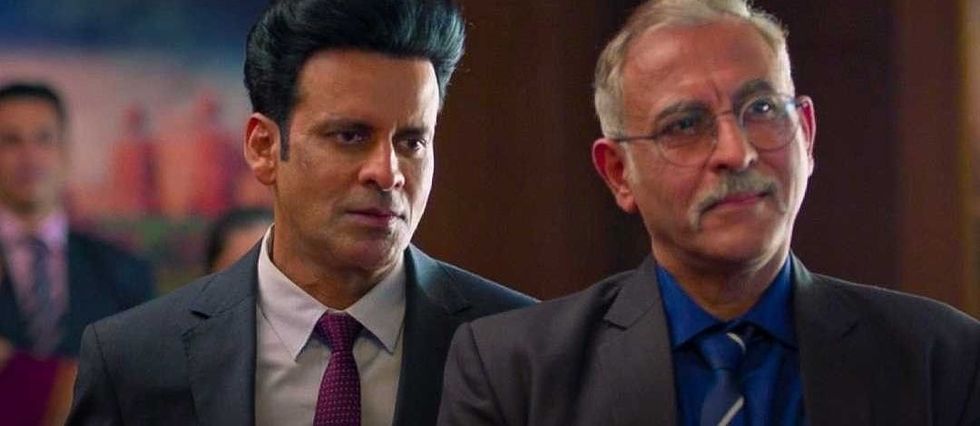 The Family Man; and Saand Ki Aankh
The Family Man; and Saand Ki Aankh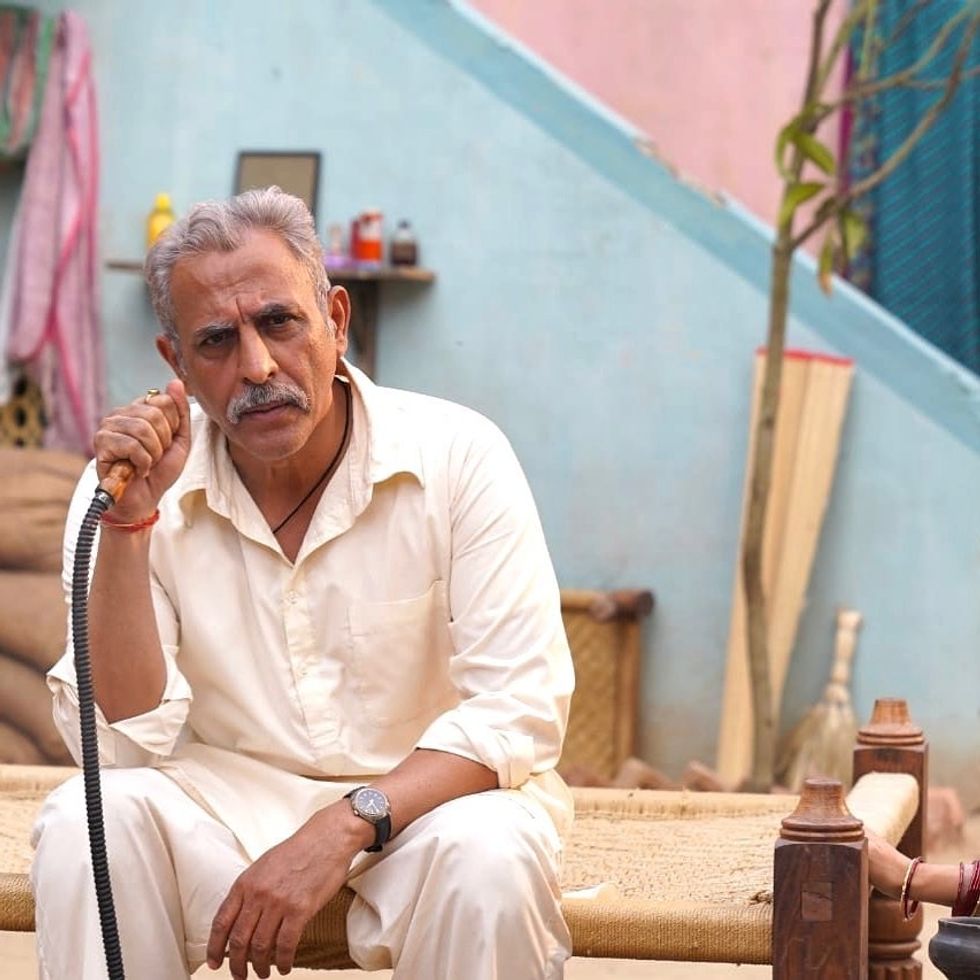


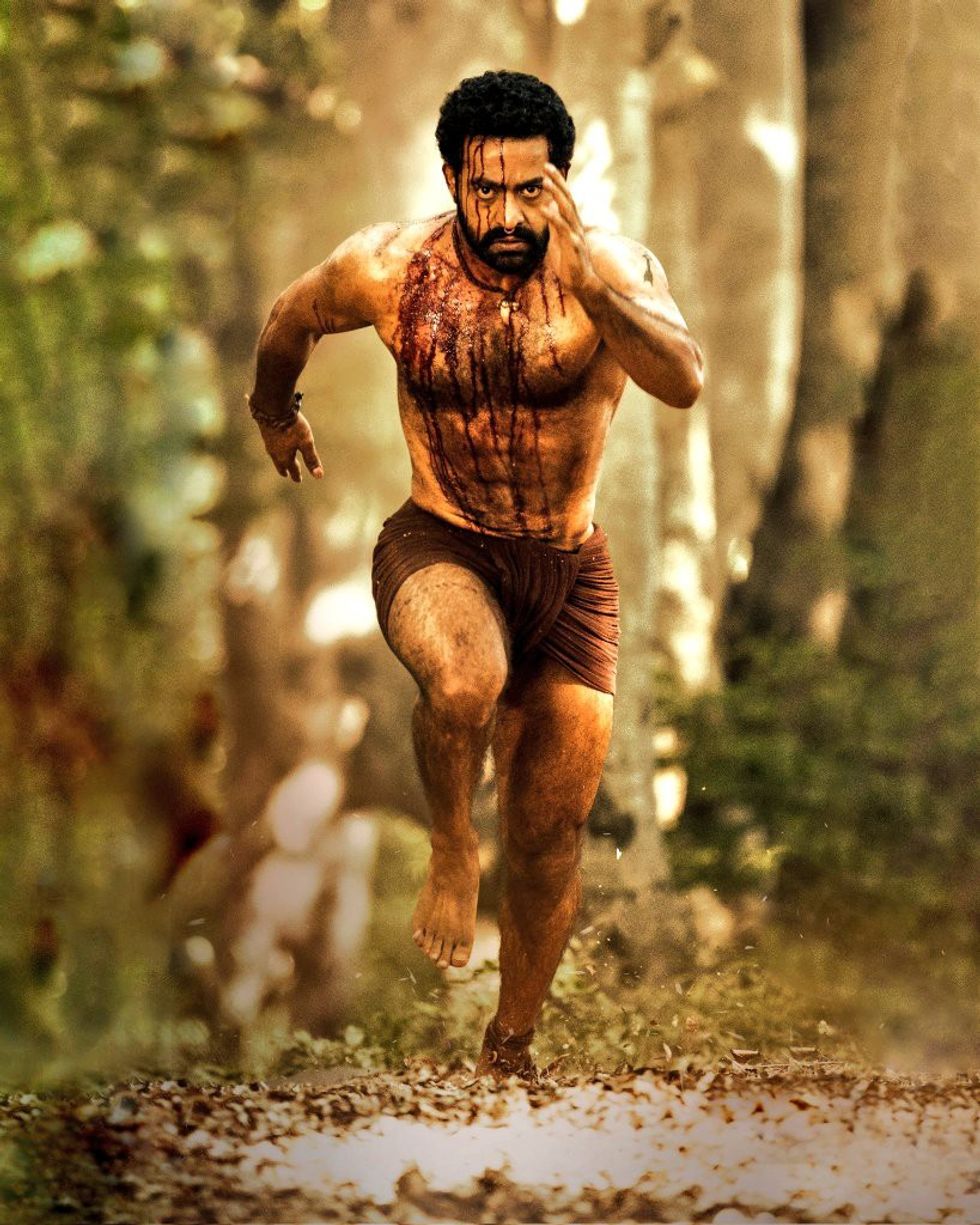 RRR
RRR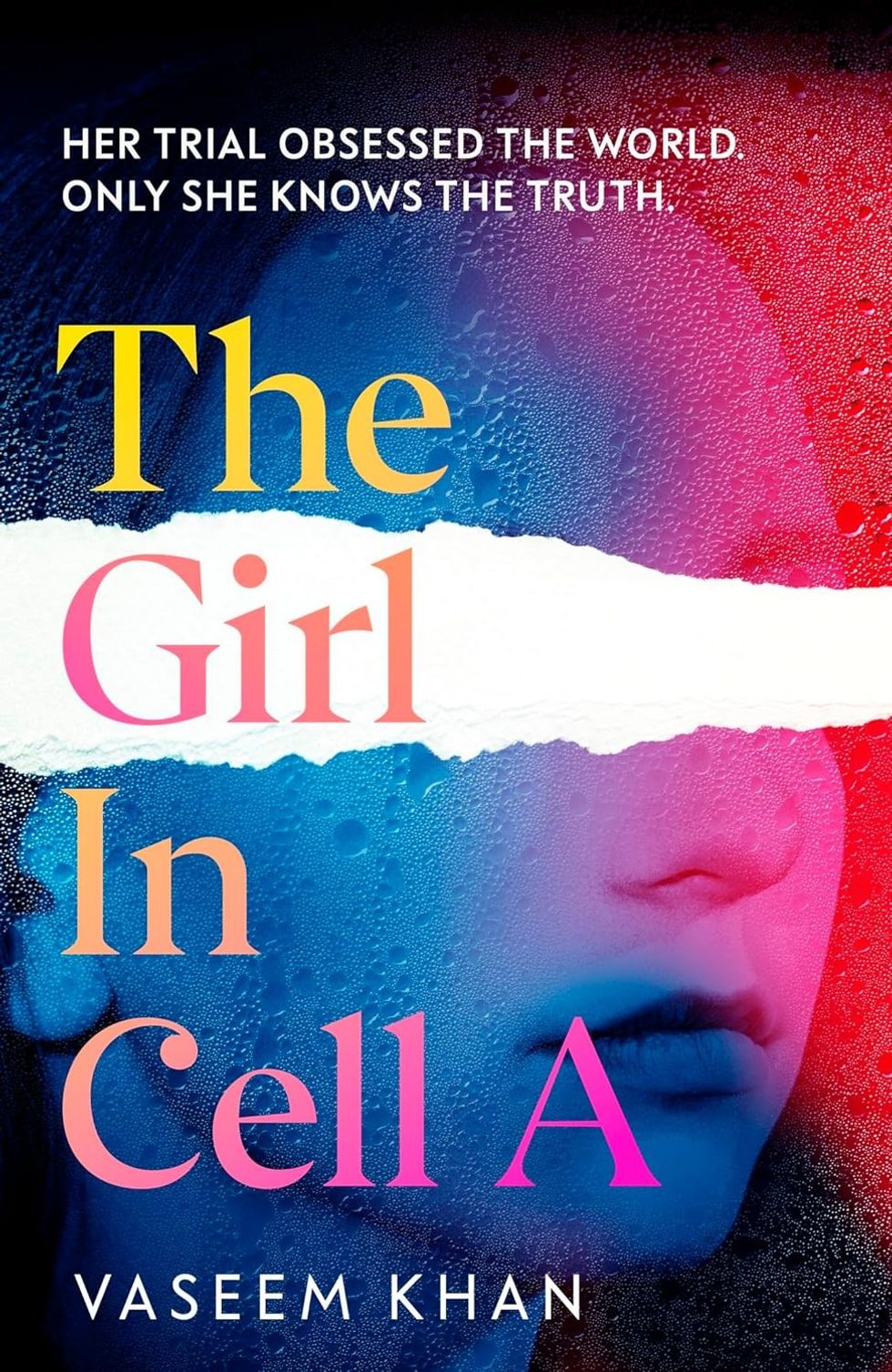 The cover of the book The Girl in Cell A by Vaseem Khan
The cover of the book The Girl in Cell A by Vaseem Khan Aziz Ansari
Aziz Ansari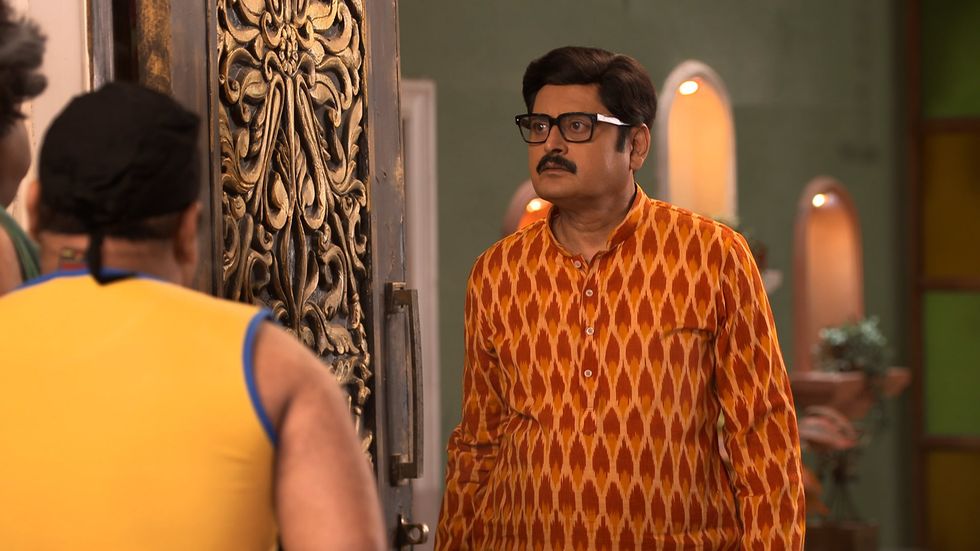 Bhabiji Ghar Par Hain
Bhabiji Ghar Par Hain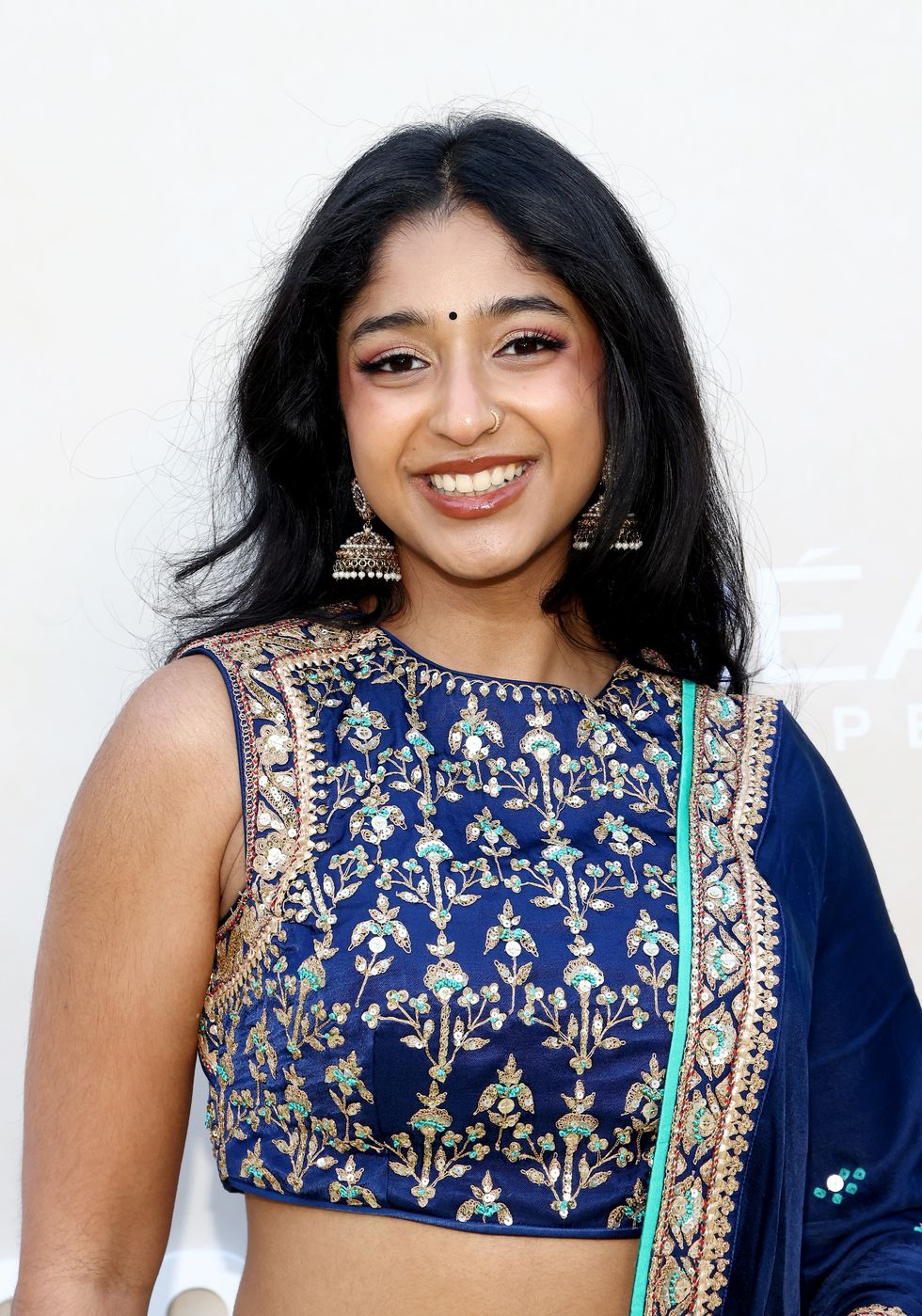 Maitreyi Ramakrishnan
Maitreyi Ramakrishnan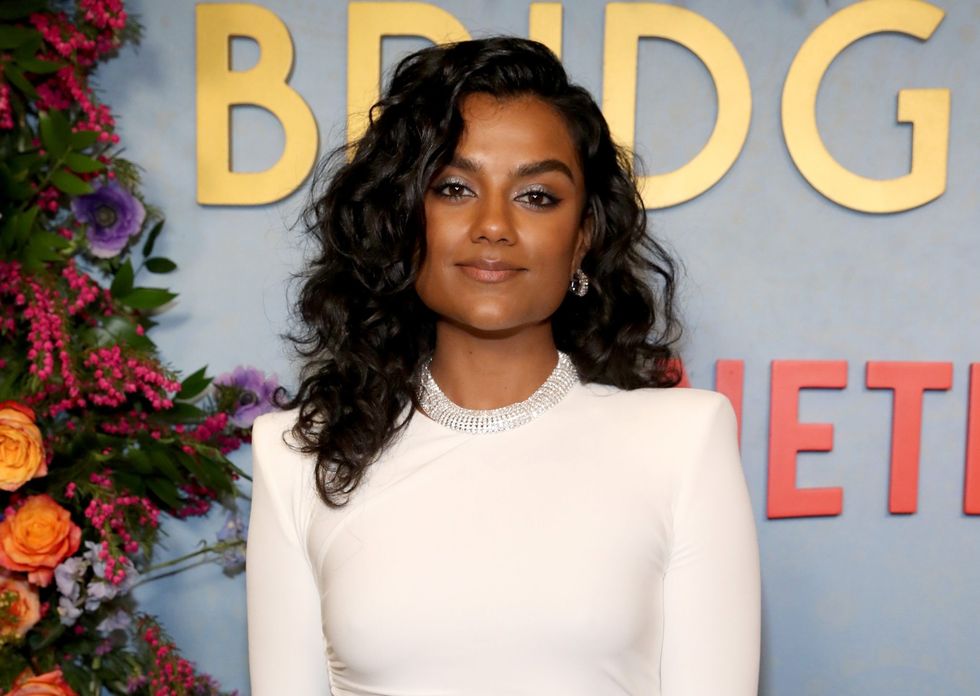 Simone Ashley
Getty Images for Netflix
Simone Ashley
Getty Images for Netflix